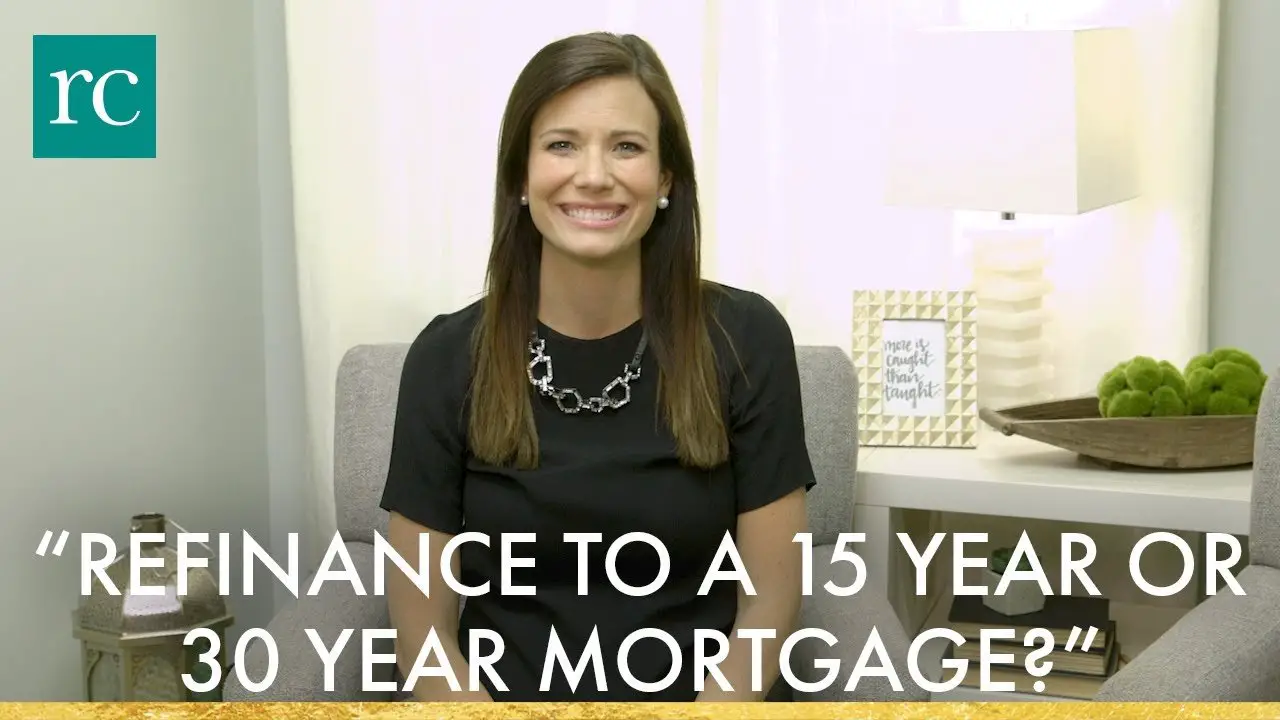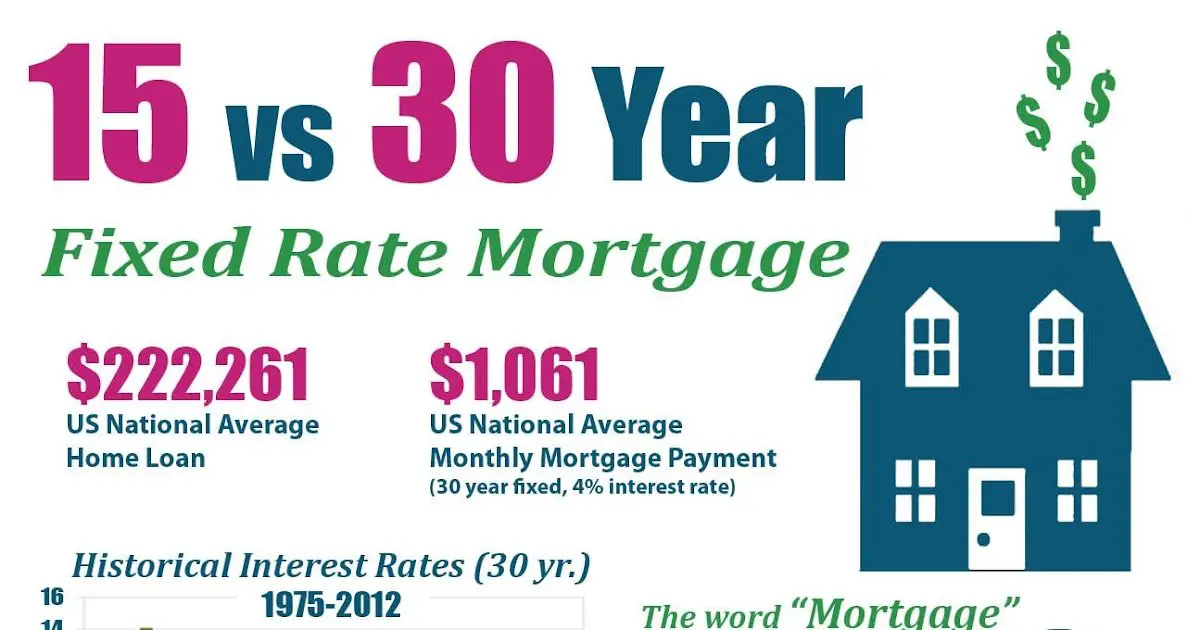How To Find The Best Refinance Rate
When searching for refinance rates online, it’s important to remember that your specific financial situation will influence the rate you’re offered. Though current market conditions will be a factor, your particular interest rate will depend largely on your application and credit history. Generally, you’ll want a high credit score, low credit utilization ratio, and a history of making consistent and on-time payments in order to get the best interest rates. Researching interest rates online is always a good idea, but you’ll need to connect with a mortgage professional to get your exact refinance rate. And don’t forget about fees and closing costs which may cost a hefty amount upfront. You should also know that many lenders have had stricter requirements when it comes to approving loans in the past few months. As such, you may not qualify for a refinance — or a low rate — if you don’t have a solid credit rating. One way to get the best refinance rates is to strengthen your borrower application. You can do that by monitoring your credit, taking on debt responsibly, and getting your finances in order before applying for a refinance. Also be sure to compare offers from multiple lenders in order to get the best rate.
When Should I Refinance
In order for a refinance to make sense, you’ll generally want to get a lower interest rate than your current rate. Aside from interest rates, changing your loan term is another reason to refinance. It’s true that in the past year, interest rates have been at a historic low. But when deciding whether to refinance, be sure to take into account other factors besides market interest rates. Make sure to consider your goals and financial situation, including how long you plan to stay in your current home. It’s helpful to have a specific goal for a refinance — such as decreasing your monthly payment or adjusting the term of your loan. And don’t forget about fees and closing costs, which can add up. Note that some lenders have tightened their requirements since the beginning of the pandemic. If you don’t have a solid credit score, you may not qualify for the best rate. Refinancing can be a great move if you get a good rate or can pay off your loan sooner — but consider carefully whether it’s the right choice for you.
Calculate The Breakeven Point
Use a mortgage refinance calculator to determine the breakeven point, which is the number of months it takes for the savings to outweigh the cost of refinancing. Divide the breakeven timeframe by 12 to calculate the number of years you need to make payments on the loan before realizing any savings from the refinance. If you plan to sell before the breakeven point, it is probably not financially worth it to refinance.
Recommended Reading: What Is The Average Time To Pay Off A Mortgage
Should I Refinance My Mortgage
9 Minute Read | September 13, 2021
Ever since the Federal Reserve dropped interest rates in 2020, theres been a new wave of hype around getting your mortgage refinanced. And for good reason too.
Last year, the annual average interest rates for common mortgages was between 2.613.11%the lowest theyve been since Freddie Mac started reporting several decades ago!1,2 And with the Feds saying they wont raise interest rates until 2023, now even more folks are wondering, Should I refinance my mortgage?3
Lower interest rates are great and all, but how do you know if its the right time for you to actually do a mortgage refinance? Well show you how to make a smart decision.
Advantages Of Refinancing To Another 30

After climbing earlier in the year, rates on 30-year fixed-rate home loans have dropped back below 3% in recent weeks and have been sinking deeper. At current rates, more than 14 million Americans with 30-year mortgages could refinance and save an average $287 a month, mortgage data and tech firm Black Knight has said.
Those refi candidates are sitting on loans with rates at least three-quarters of 1 percentage point higher than rates now available on 30-year fixed-rate mortgages. Those are averaging 2.90% in the latest weekly survey from mortgage giant Freddie Mac not too far above January’s record low of 2.65%.
If your mortgage is from 2019, you might easily have a rate that’s over 4%.
Fifteen-year fixed-rate mortgages come with even lower rates than 30-year loans. Rates on the shorter-term mortgages are now averaging 2.20%, Freddie Mac says.
But 15-year loans also come with much stiffer monthly payments, and taking on a high payment may be risky amid the current economic uncertainty. Though the stock market keeps shooting to new all-time highs, more Americans are signing up for unemployment benefits and the nation’s jobless rate is rising.
A $250,000, a 30-year fixed-rate mortgage at 2.90% has a monthly payment of $1,041. The same size mortgage for 15 years at 2.20% has a much steeper monthly tab: about $1,632.
You May Like: Does Mortgage Prequalification Affect Credit Score
What Credit Score Is Needed To Refinance
At Rocket Mortgage®, youll need a credit score of at least 620 and a maximum loan-to-value ratio of 95% to refinance a conventional loan. However, credit score requirements may vary slightly depending on your lender.
If you feel your credit score is in poor condition, check with your lender to see what your options are. You may be able to still qualify for other options, such as an VA or FHA loan.
How Refinancing Into A 15
A mortgage refinance is when borrowers get a new loan to pay off their existing loan. With a 15-year refi, homeowners can pay off their 30-year mortgage with a new 15-year home loan, and then make monthly payments on their new shorter-term loan.
Many homeowners end up paying a lower interest rate and owning their properties sooner by refinancing from a 30-year mortgage into a 15-year mortgage.
Keep in mind, a refi comes with closing costs. And youll probably make higher monthly payments on your new mortgage loan, which means less cash flow.
However, closing costs can be negotiated, potentially making refinancing into a 15-year loan more appealing.
Recommended Reading: What Does Prequalification For A Mortgage Mean
Should You Refinance To A 15
The main difference between a 15- vs. 30-year mortgage is how long itll take you to pay off your mortgage. As the names suggest, a 15-year mortgage will take 15 years to pay off, while a 30-year mortgage will take 30 years.
With a shorter loan term, youll save money in the long run, but your current monthly payment will be higher. And, as with many refinances, youll also have to pay closing costs to refinance from 30 to 15 years.
Its important to know that everyones situation is different, and that a refinance may not be the best option for you at this time. The best way to determine if its a good time to refinance to a 15-year loan is to speak with a mortgage expert who can review your information. Theyll help you to see if its the right loan, or they may suggest alternative loans that may be a better fit for your financial goals.
Are You In Need Of More Room For Monthly Cash Flow
Refinancing can change your monthly payment and make it either higher or lower, depending on the terms you choose. If youre in desperate need of some breathing room in your monthly budget, it could make sense to refinance and pay a lower monthly rate, so long as you use that freed up cash towards your goals.
A huge mistake would be to refinance, lower your payment, and not have a clear plan of what youll be doing with those new freed up dollars each month.
Read Also: Does Chase Allow Mortgage Recast
Average Costs Of Refinancing
As with any loan, a refinance may come with certain fees, including:
- Application fee
- Recording fee
- Title search and insurance
While the costs will vary depending on your loan and lender, you can expect to pay about 2% 3% of your loan balance. For example, if you refinance to a $200,000 loan, you can expect your closing costs to be around $4,000 $6,000.
If youre considering refinancing to save money, keep in mind the costs to refinance. How long will it take for you to recoup these expenses? Will you stay in the home long enough for that to happen? If not, you arent actually saving money.
How Do I Pay Off A 30
There are a few ways to pay down a 30-year mortgage in 15 years. First, you could consider refinancing your current mortgage into a 15-year fixed mortgage. Another way is to make extra payments towards the principal amount or make biweekly payments equally one additional mortgage payment per year. This might not get you to the 15-year mark, but the amount of principal would most certainly go down.
Recommended Reading: Why Are Mortgage Closing Costs So High
The Savings And Costs Of A 15
The biggest advantage to choosing a 15-year loan is lower interest costs.
The reason for this is two-fold: First, youre paying interest for fewer years. On top of this, 15-year loans have always offered lower rates than longer-term mortgages. According to Freddie Mac, the average 15-year rate was 3.39% in 2019 and 2.61% in 2020. On 30-year loans, it was 3.94% and 3.11%, respectively.
Why are shorter-term rates so much lower? According to Glenn Brunker, president of mortgage lender Ally Home, Lenders view these shorter-term loans as less risky investments. And in the mortgage world, the lower the lenders risk, the better the interest rate.
Lower rates arent the only perk to 15-year loans, though. Shorter-term loans also allow homeowners to rid themselves of mortgage debt much faster. That can mean an earlier retirement or a more aggressive savings or investing strategy later on.
Many Americans are forced to continue to work well into the later years in their lives because of the need to pay their mortgage, said Eli Sklar, a senior loan consultant with mortgage lender LoanDepot. People are feeling and recognizing that they want to retire earlier on in life and paying off a mortgage more rapidly with a lower rate will effectively allow that.
Theres also the issue of qualifying for a 15-year loan. Due to their higher risk not to mention the higher monthly payments they come with lenders tend to be stricter with 15-year borrowers.
Is It Worth Refinancing For 1 Percent

Refinancing to save 1 percent is often worth it. One percentage point is a significant rate drop, and it should generate meaningful monthly savings in most cases.
For example, dropping your rate 1percent from 3.75% to 2.75% could save you $250 per month on a $250,000loan. Thats nearly a 20% reduction in your monthly mortgage payment.
Those monthly savings can be put toward daily living expenses, emergency funds, investments, or paid back into your mortgage to pay the loan off early and save you even more in interest.
Refinancing for a 1percent lower rate
| Loan Balance | |
| Worth It? | Yes, if you keep the loan ~2 years or longer |
Keep in mind, breaking even with your closing costs isnt the only way to determine if a refinance is worth it.
A homeowner who plans to move or refinance again before the break-even point might opt for a no-closing-cost refinance.
You May Like: What Does A Fixed Rate Mortgage Mean
Why You Can Trust Bankrate
Founded in 1976, Bankrate has a long track record of helping people make smart financial choices. Weve maintained this reputation for over four decades by demystifying the financial decision-making process and giving people confidence in which actions to take next.
Bankrate follows a strict editorial policy, so you can trust that were putting your interests first. All of our content is authored by highly qualified professionals and edited by subject matter experts, who ensure everything we publish is objective, accurate and trustworthy.
Our mortgage reporters and editors focus on the points consumers care about most the latest rates, the best lenders, navigating the homebuying process, refinancing your mortgage and more so you can feel confident when you make decisions as a homebuyer and a homeowner.
How Does A Mortgage Work
A mortgage is a secured loan that uses the home as collateral for the lender to issue you financing. This means that the lender will have a lien on your home until the mortgage is paid in full. After closing, youll make monthly paymentswhich covers principal, interest, taxes and insurance. If you default on the mortgage, the bank will have the ability to foreclose on the property.
Read Also: When To Refinance Your Mortgage Dave Ramsey
How Old Will You Be When The Mortgage Is Repaid In Full
One downside to refinancing is that if you sign up for a new 30-year mortgage, youre restarting the clock until youre mortgage free. If youre already seven years into a 30-year loan, you may not want to start over again with 30 years to go. This is especially true if the new timeline would mean youre carrying debt into your 60s when youre likely going to be thinking about retiring.
Its possible you could pay more than the monthly minimum to shave time off the repayment term, but this should be a consideration as well. Alternatively, you can refinance to a 15-year mortgage.
Expenses To Consider Before Refinancing
The one exception has to do with loan closing fees. Those expenses can mount quickly, which is why itâs important to watch how much youâre getting charged. Without making it too complicated, if your loan closing fees are $1,000 and your monthly payment goes down by $100, it will take 10 months until your âsavingsâ equals the out of pocket costs for the refinance. If, however, that your loan closing costs are $6,000, it will take you five years to end up even. Weâd rather see you recoup any out of pocket closing costs within the first year after a refinance.
Just donât confuse closing costs with other out of pocket costs youâll have to pay upfront for, such as taxes, insurance escrows and other costs in the decision about whether to refinance. Thatâs not the right way to think about it. Youâll pay those costs no matter what. We know that many borrowers will say that their monthly payment is $1,000 and include in that amount the principal repayment, interest, tax escrow and insurance. But when youâre trying to figure out what you want to do, you shouldnât factor in the tax and insurance escrows. Just look at the principal and interest part of the payment so your comparison is apples to apples.
Read Also: What’s The Monthly Mortgage Payment
How Much Money Do You Save With A 15
Lets look at a hypothetical homeowner to see what savings would look like if a homeowner refinanced from a 30-year fixed-rate mortgage at 4% to a 15-year fixed-rate mortgage at 2.32%.
If the homeowner took out a $300,000 home at 4% interest per our example above, they would pay $1,432 per month and a total of $515,609 .
If the homeowner refinances that $300,000 loan at 2.32% for 15 years, their new payment would be $1,975 per month, and they would pay a total of $355,509 . Thats a savings of $160,100.
This example doesnt consider that the homeowner would likely already owe less than the original balance, reducing the total monthly payment accordingly.
As you consider refinancing your mortgage, make sure to visit Credible to compare rates and lenders in one spot. Doing your research ahead of time saves money and time.
What If I Cant Pay My Current Mortgage
If youre out of work right now and finding it hard to pay your mortgage, theres good news for you. Depending on your specific situation, you may be able to have your mortgage payments lowered or put on hold.5
Doing that can really help to free up the burden you might be feeling right now if youre worried about when youll see your next paycheck.
Also Check: How Do You Calculate Points On A Mortgage
How To Decide If Refinancing To A 15
Should you refinance to a 15-year mortgage? Again, that depends on your situation. If youre trying to save money right now, youll want to compare costs and do the math to make sure youre actually going to accomplish that especially if you dont plan on staying in the home for a long time. If youre looking to save money in the future and plan on living in your home for many years to come, refinancing to a 15-year may be a good option for you.
Here are a few ways decide.
Do I Plan To Stay In My Home For A Few More Years

Closing costs can be worth paying if, in the long run, they result in savings on your mortgage payments. But you’ll need to make sure you plan to stay in your home long enough to actually reap savings.
If you’re charged $4,000 in closing costs to save $200 a month on your mortgage payments, you won’t break even for 20 months. And so if you think you might move in a year, you’re probably better off waiting to refinance.
Though refinance volume may have dipped a lot last week, things could change as 2021 winds to a close. If you’re on the fence about refinancing, run through the questions above. Also, don’t feel pressured to apply for a refinance this year. Chances are, rates will remain nice and competitive once 2022 kicks off.
Recommended Reading: Why Are Mortgage Rates Lower Than Prime
